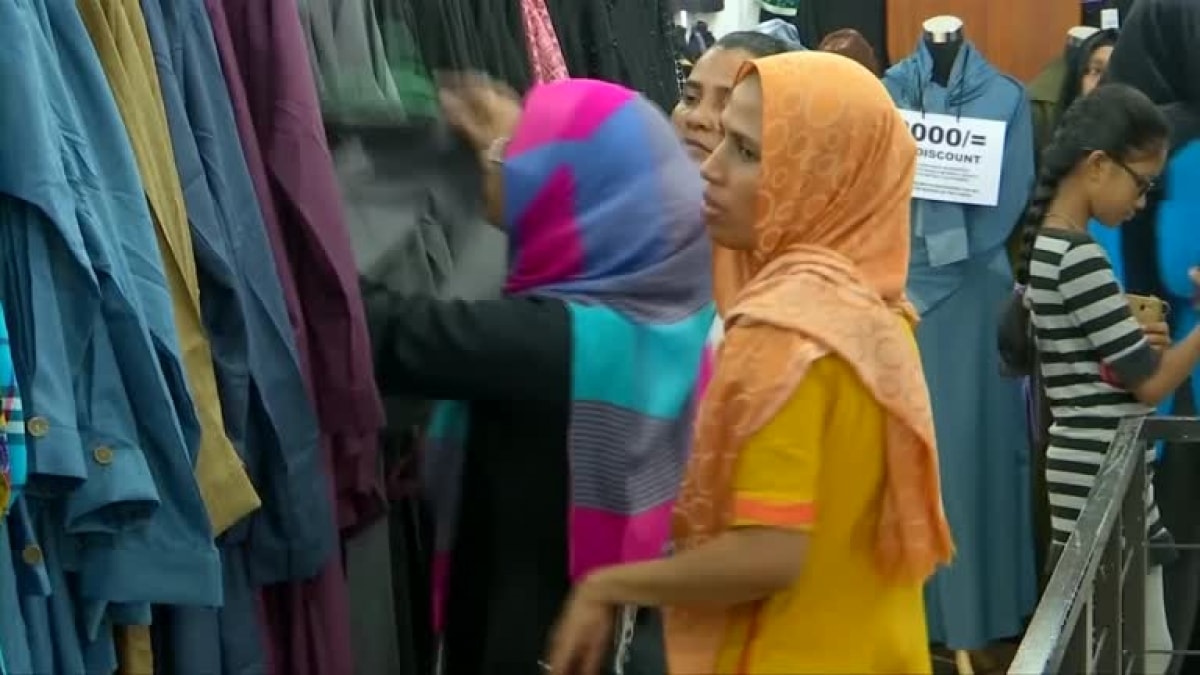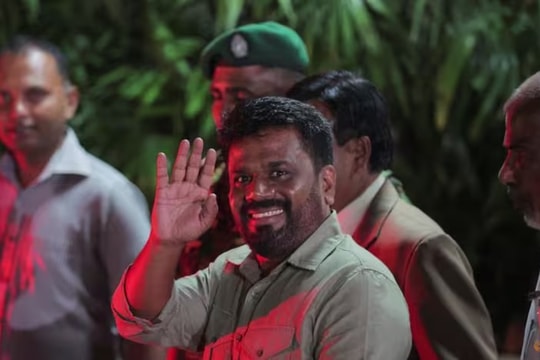Muslim headscarves banned in Sri Lanka
Wearing of Muslim burqa is banned in Sri Lanka. That is the new decision of the Government of this country.
The Sri Lankan government has just signed into law measures to prevent the risk of radicalization in the country.
Accordingly, the wearing of Muslim burqas is banned in Sri Lanka. In addition, more than 1,000 Islamic schools will also be banned in this South Asian country.
Sri Lankan Security Minister Sarath Weerasekara signed the document announcing the ban. Sri Lankan government officials also said the burqa was a threat to national security.
“We have many Muslim friends and they never wear burqa. This is what religious extremists use to promote (their ideology). So we will ban it,” said Mr. Sarath Weerasekara.
Sri Lanka's Security Minister said that there are currently more than 2,000 Islamic schools operating in the country. He affirmed that no one can open a school in Sri Lanka and teach whatever they want. All schools must follow the country's general education policy. Therefore, according to Minister Sarath Weerasekara, more than 1,000 Islamic schools in Sri Lanka will have to close.
Last month, Sri Lanka’s Justice Minister Ali Sabry said the government would ban full-face veils in public. The new policy is not aimed at any particular community but is in the utmost interest of national security.
 |
A Sri Lankan parliamentary committee proposed banning the burqa in February 2020. The Indian Ocean island nation implemented emergency regulations in the wake of the Easter Sunday attacks in April 2019, which included a ban on wearing full-face veils.
But rights groups say that, with Sri Lanka’s Muslims already fearful of social anger, a ban on women wearing face veils for religious reasons would make them even more vulnerable to harassment. Instead, authorities could conduct background checks if deemed necessary.
Regarding the Easter attacks in April 2019, Sri Lanka’s security minister said that the government’s intelligence and security officials at the time missed opportunities to prevent this terrorist act. A report said that there had been a series of isolated incidents just before Easter. This showed that the terrorists had planned and tested the attacks in advance. Investigations showed that only one group was involved in this series of attacks.
The Sri Lankan government has arrested 676 people in connection with the attacks, of which 66 are in custody for investigation. In early 2020, Sri Lankan intelligence reports revealed that a female extremist group led by Zahran Hashim had trained 17 of them and had sworn to carry out suicide attacks. Five of them have died, while three have been charged and detained./.




